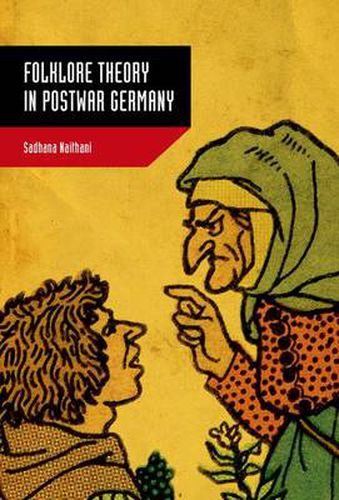Readings Newsletter
Become a Readings Member to make your shopping experience even easier.
Sign in or sign up for free!
You’re not far away from qualifying for FREE standard shipping within Australia
You’ve qualified for FREE standard shipping within Australia
The cart is loading…






This title is printed to order. This book may have been self-published. If so, we cannot guarantee the quality of the content. In the main most books will have gone through the editing process however some may not. We therefore suggest that you be aware of this before ordering this book. If in doubt check either the author or publisher’s details as we are unable to accept any returns unless they are faulty. Please contact us if you have any questions.
Can the study of folklore survive brutal wars and nationalized misappropriations? Does folklore make sense in an age of fearsome technology? These are two of several questions this book addresses with specific and profound reference to the history of folklore studies in Germany. There in the early nineteenth century in the ideological context of romantic nationalism, the works of the Brothers Grimm pioneered the discipline. The sublimation of folklore studies with the nation’s political history reached a peak in the 1930s under the Nazi regime. This book takes a full look at what happened to folklore after the end of World War II and the defeat of the Nazis. A special focus on Lutz Roehrich (1923-2006), whose work spans the decades from 1955 to 2006, makes this book a unique window into a monumental reclamation. In 1945 Roehrich returned from the warfront at the age of twenty-three, a wounded amputee. Resuming his education, he published his seminal Marchen und Wirklichkeit (Folktale and Reality) in 1956. Naithani argues that through this and a huge body of scholarship on folktale, folksong, proverbs, and riddles over the next decades, Roehrich transformed folklore scholarship by critically challenging the legacies of Romanticism and Nazism in German folklore work. Sadhana Naithani’s book is the first full-length treatment of this extraordinary German scholar written in English.
$9.00 standard shipping within Australia
FREE standard shipping within Australia for orders over $100.00
Express & International shipping calculated at checkout
This title is printed to order. This book may have been self-published. If so, we cannot guarantee the quality of the content. In the main most books will have gone through the editing process however some may not. We therefore suggest that you be aware of this before ordering this book. If in doubt check either the author or publisher’s details as we are unable to accept any returns unless they are faulty. Please contact us if you have any questions.
Can the study of folklore survive brutal wars and nationalized misappropriations? Does folklore make sense in an age of fearsome technology? These are two of several questions this book addresses with specific and profound reference to the history of folklore studies in Germany. There in the early nineteenth century in the ideological context of romantic nationalism, the works of the Brothers Grimm pioneered the discipline. The sublimation of folklore studies with the nation’s political history reached a peak in the 1930s under the Nazi regime. This book takes a full look at what happened to folklore after the end of World War II and the defeat of the Nazis. A special focus on Lutz Roehrich (1923-2006), whose work spans the decades from 1955 to 2006, makes this book a unique window into a monumental reclamation. In 1945 Roehrich returned from the warfront at the age of twenty-three, a wounded amputee. Resuming his education, he published his seminal Marchen und Wirklichkeit (Folktale and Reality) in 1956. Naithani argues that through this and a huge body of scholarship on folktale, folksong, proverbs, and riddles over the next decades, Roehrich transformed folklore scholarship by critically challenging the legacies of Romanticism and Nazism in German folklore work. Sadhana Naithani’s book is the first full-length treatment of this extraordinary German scholar written in English.